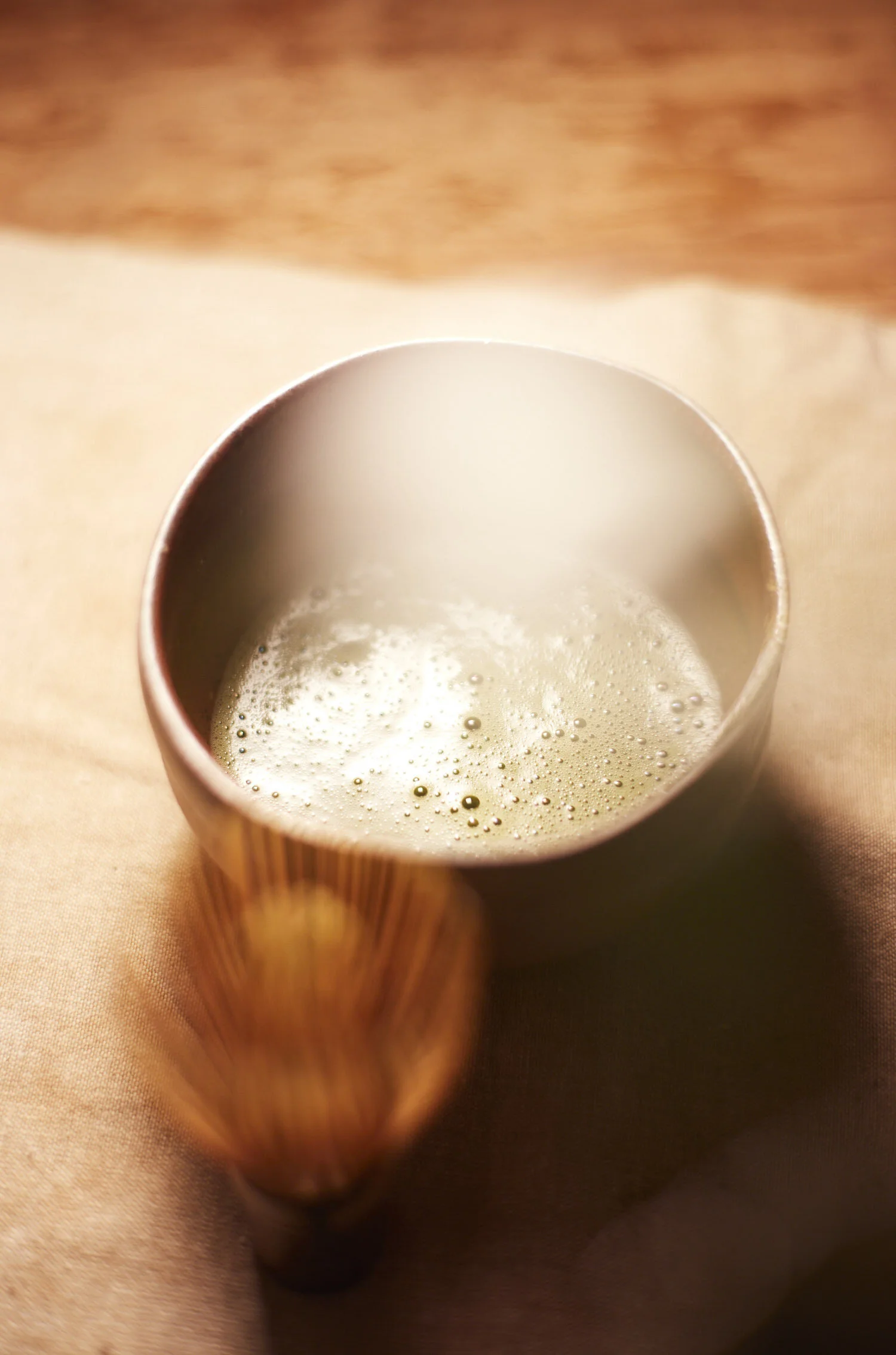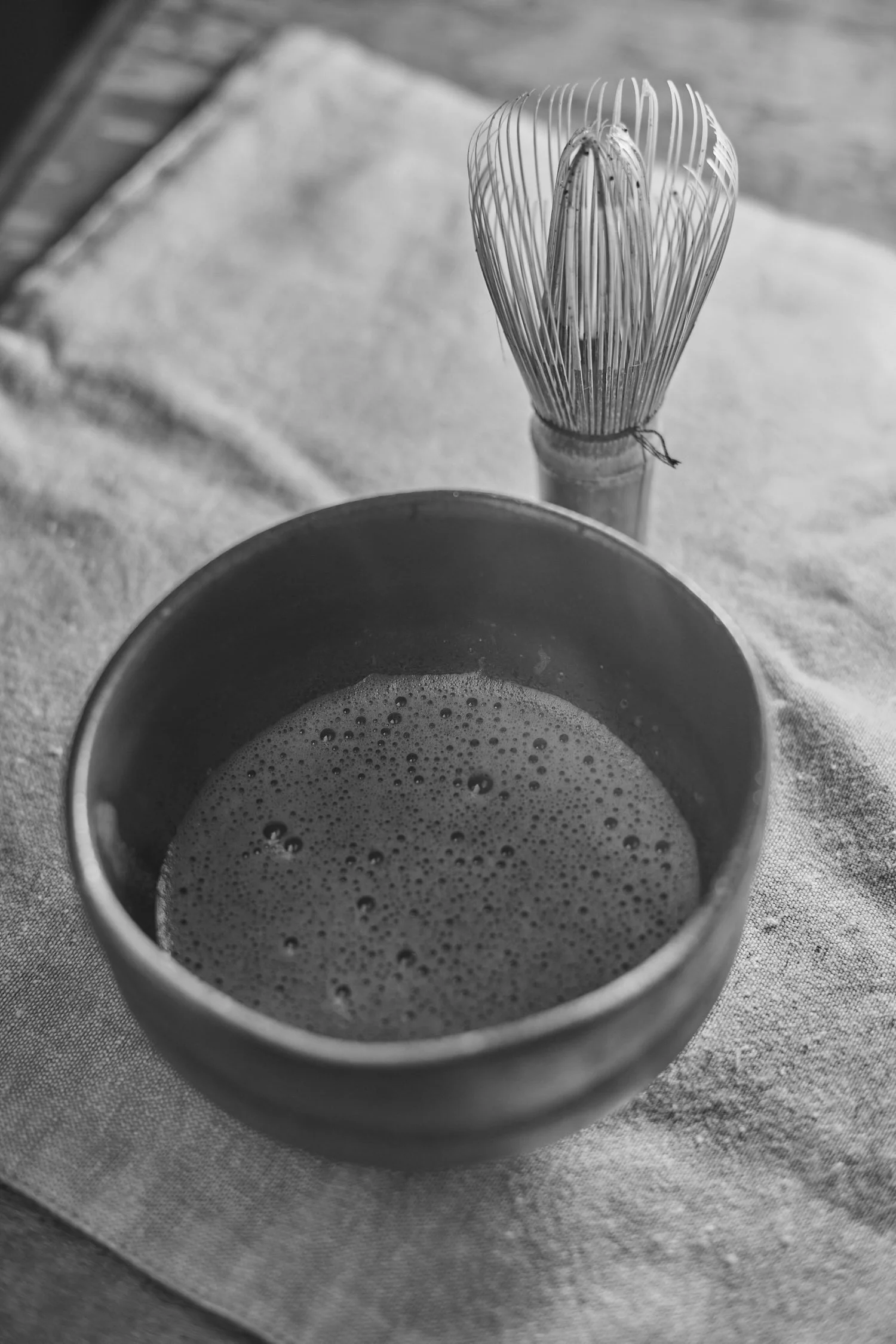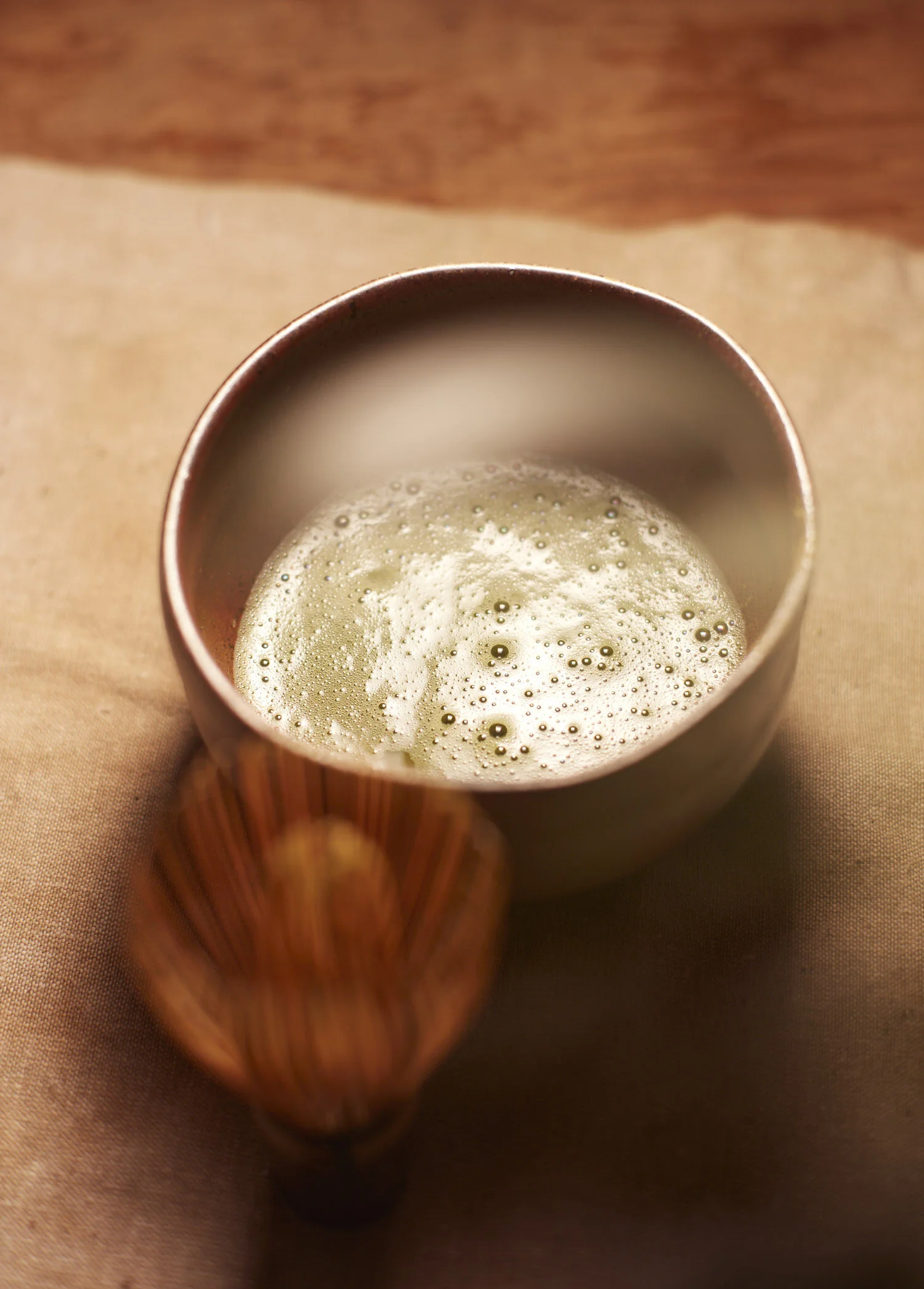Yes, Matcha Green Has Caffeine (Here's Why)
So, does Matcha green tea have caffeine? The answer is yes! In fact, all tea does. But that's a simple answer to a complex question.
That's why I wrote this article. We'll dig a little deeper to explore exactly why Matcha tea has caffeine and how much caffeine it has. We’ll also explain what is the difference between Matcha’s caffeine and Coffee’s caffeine effects on the body. So grab a cup of Matcha and let's get started.
What is Matcha?
Matcha is a powdered Japanese green tea, which makes it a little different than regular Green tea. Unlike most teas that are steeped, Matcha powder is whisked into hot water. So you drink the leaf that's suspended in the water.
Even cooler, it's packed with antioxidants and other health benefits. If you want to geek out on Matcha (or just learn the basics) be sure to read our comprehensive beginner's guide – What is Matcha?
What does Matcha Taste Like?
Matcha green tea tastes bright, fresh, vegetal (a bit like green veggies), slightly bitter, and a little sweet. A few things that will change the taste of Matcha are overall quality and freshness.
Matcha should be consumed fresh. Meaning within a reasonable amount of time from stone-grinding, and from when the bag or container has been opened. Because Green tea is essentially unoxidized, it's susceptible to oxidation and goes bad kinda quickly. But going bad in tea lingo just means it starts to taste a lot different than it was originally intended to.
What's probably more important is the quality of your Matcha… There are no official grades of Matcha, but you'll see a lot of them talked about (ceremonial, premium, culinary, etc). Most of that is marketing…
But! Some Matcha teas are definitely made for cooking or mixing into drinks with milk like matcha lattes. They happen to be a lot more bitter and aren't used for traditional Matcha drinking. So that's just something to be aware of.
And although ¨culinary¨ or ¨ceremonial¨ are marketing terms, they still can denote some quality differences. If you want to know how to distinguish a quality Matcha from a bad one, check out our detailed article Ceremonial VS Culinary Matcha here.
It's also important to note that it's a Japanese tea and should be grown in Japan (some poor-quality tea grown elsewhere is sometimes ground up and passed off as Matcha...it's not). Now on to what you're here for...the caffeine!
Does Matcha Green Tea Have Caffeine?
Yes. Matcha green tea does contain a significant amount of caffeine – In fact, all tea (meaning true tea from the Camellia Sinensis plant versus tisane) has significant caffeine content. Let's talk about why that is...
Why Does Tea Have Caffeine?
Camellia Sinensis (the scientific name for the tea bush) – like all plants – has some natural defenses built into its genetics. That's where caffeine comes in...
Caffeine is widely known for its stimulating effects. This effect has a lot to do with how caffeine interacts with the central nervous system. But it occurs naturally in plants as a defense mechanism that deters pests and prevents them from eating too much of the leaf.
Actually, caffeine belongs to the category of alkaloids. Which are basically nitrogenous organic compounds (read: contain mainly nitrogen atoms) that have pronounced physiological impacts on humans – think drugs (like morphine) or poisons.
But these also have profound effects on animals and insects. This is why caffeine works as a natural pesticide and pest deterrent. It's strong enough to even paralyze or kill some insects, and it's toxic (at high levels) to humans.
What is Caffeine For?
What's really interesting about caffeine in plants is that it's an evolutionary advantage. Plants have slowly evolved over millions of years to produce it. Generally speaking, new buds on a tea plant (which usually come out in spring) contain more caffeine than older leaves, which makes sense from an evolutionary standpoint.
New buds = new growth. And caffeine keeps them safe. But the answer to exactly why plants contain caffeine is slightly more complicated than that and is still being studied...
But what's cool is that scientists are figuring out some fascinating history about how caffeine has evolved to control pests and change the behavior of animals and humans. Caffeine content plays a large role in why tea has been consumed for centuries and why it was cultivated into the beverage it is today.
How Much Caffeine is in Matcha?
A typical 8oz cup of Matcha green tea has about 34-70 mg of caffeine. This has a lot to do with how much-powdered tea you actually use. While the caffeine levels are less than a typical 8oz cup of coffee (which has about 95mg), it'll still give you a nice jolt (but without all of the negative aspects of the post-coffee caffeine withdrawals.
Be sure to check out our dedicated article about exactly How Much Caffeine Matcha Contains here. If you can't do caffeine, unfortunately, decaf Matcha isn't a thing.
Extra info: Although Green tea is not the most caffeinated tea, Matcha contains way more caffeine than regular Green tea. Matcha’s caffeine content ranges between 19 and 44mg/g, while Green tea’s ranges between 11 and 25mg/g.
Caffeine in Matcha vs Caffeine in Coffee
Both coffee and Matcha have significant amounts of caffeine. So both provide that bright and energetic stimulation. But Matcha hits different… And that's because it contains an amino acid called L-theanine.
When this amino acid mixes with caffeine, it produces a mildly euphoric experience (sometimes affectionally referred to as tea drunk). Research shows that L-theanine promotes relaxation. So when you consume it, you feel pretty calm… And that's why the caffeine in Matcha doesn't make you overly stimulated.
More On L-Theanine
The L-theanine produces calm, focused attention (which is why tea has long been loved by monks). And it won't lead to the caffeine crash that coffee does (but that doesn't mean it won't provide a solid energy boost).
Coffee produces a quick caffeine kick, but it isn't afraid to drop you (the dreaded caffeine crash). All while leaving you with those annoying withdrawal headaches.
Switching it Up
Matcha definitely has a different punch than coffee, but if you're considering switching up your go-to caffeine drink, just remember all of the health benefits that Matcha is packed with.
We actually wrote a detailed article that looks at the differences between Matcha and coffee. If you’re interested, you can check it out here: Why Matcha is Way Better than Coffee.
Does Caffeine Change the Taste of Tea?
In short, yes. The bitterness in tea is a result of caffeine. So higher caffeine levels usually mean more bitterness. But it's important to note that longer steep times or hotter water pull more caffeine out of the tea leaves. So the steeping time and water temperature will have an impact on the bitterness of a tea.
What's unique about Matcha is that it's not steeped. It's whisked into hot water. So the tiny ground leaf is actually suspended in the water, meaning you consume the whole leaf, not a brew. So Matcha usually has a pronounced, but very tolerable bitter element. And some Matcha are so mellow that you actually won’t taste any bitterness at all.
Is Caffeine in Matcha Safe?
Yes, the Caffeine in Matcha is safe to consume. Some people are definitely more sensitive to it and should be careful about the amount they consume.
But normal caffeine consumption is quite safe. It can actually help women feel better during their periods, and it's even ok to drink Matcha while you're pregnant. But if you have any major concerns make sure you consult your doctor. I'm just a tea geek!
Health Benefits of Matcha
So it turns out that Matcha green tea is packed with health benefits. But before I go over some of these, please just remember – I'm a tea geek, not a doctor.
Matcha is mainly known for its caffeine kick but it's also full of powerful catechins (which is just a fancy word for health-promoting compounds) and antioxidants. Most tea contains these, but Matcha has higher levels because of the fact that you're consuming the actual leaf. Hence why Matcha is so good for you.
These antioxidants have potent anti-cancer effects. And Green tea has even been shown to lower blood pressure and improve cardiovascular health. Matcha is even good for your teeth! It even has a high chlorophyll content, which is great for human health!
Join Us For Tea
Now you know why Matcha has caffeine and the approximate amount it contains. And you also know Matcha’s incredible benefits, especially when you compare it to coffee… It gives you the same energy, but keeps you relaxed without this annoying caffeine crash.
So the next step is… to try it! Whether you are new to Matcha or you already tasted some before, we would like to invite you to try our Matcha. Because it is that special.
Ooika’s mission is to offer you the best and most unique Matcha:
Grown in Famous Matcha Terroirs such as Uji
Stone-milled in the USA (the traditional Japanese way)
Always extremely fresh (never more than 7 days old)
In a word, we got good stuff! So if you feel like tasting exceptional Matcha, check out the Ooika Shop. You can buy our Matcha online here.
MORE ON MATCHA






